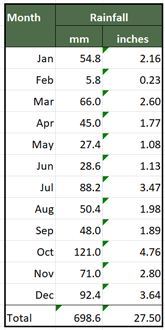November's weather has started off a bit none descript. Friday wasn’t a particularly nice day but given that it’s November I shouldn’t complain. It was a dull, calm but mild day so we decided on an afternoon trip to the allotment.
I’m sure you are aware if you follow my blog, that I’m trying to refurbish one of our beds. It’s involved cutting down an elder tree and I spent some time chopping up branches and twigs so that they take up far less space. Whilst I was busy doing this Sue was tidying up our chard plants, cutting down the old sweet corn plants and adding the waste to one of our compost heaps.
Now I think you’ll have to agree that this particular compost heap is full and there isn’t any more space for composting material. I know that in an ideal world we should chop up all the material and mix the different materials together. We’ve no mechanical means of doing this and chopping it all by hand would take forever. So we settle for adding the material without chopping and accept that it will take longer to turn into compost.
However, when I saw how full this compost bin was, I decided action was required. I was a little bored of chopping up elder tree branches and I thought it would be a good idea to investigate the compost, that had been left to rot down for a couple of years, in one of our heaps.
As it turned out the material had broken down into some excellent compost. I had time to dig out a couple of barrow fulls before it was time to leave, as the light was starting to fade.
The main problem is that the area around our compost heaps is infested with bindweed. The only saving grace is that the long white roots are easily spotted as the compost is dug out. You can just about make out some of the long white roots in the photo above. I have to be very careful not to miss any of the roots as the compost is transferred to bindweed free beds.
Before leaving I covered the material with some weed control fabric to keep the worst of any rain off the excellent compost.
I’m making it a priority to empty this compost heap before I continue any other jobs. The compost is too good to waste. Once I’ve emptied out the compost we can start refilling the bin.






























Ha - the bindweed is the danger! You had me going.
ReplyDeleteI always try to stop the bindweed from flowering so I don’t transfer any seed. So far I’ve been successful.
Deleteah the dreaded bindweed is there an allotment plot in England that hasn't got it lurking in the soil I have never completely got rid of it, nice to see your composting is showing good results
ReplyDeleteSome parts of our plot are infested with the stuff and as much as we try we don’t seem to be able to control it. However some parts are clear of bindweed and we’d hate to spread it to these clean parts of the allotment.
DeleteBindweed is not an issue here however mice are the real threat! They give birth and live inside the compost...
ReplyDeleteI’ve found mice and their nests in our compost heaps too. I’ve seen the occasional rat too but they are generally more of a problem if chickens are kept on the allotment.
Delete